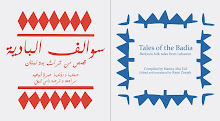"Poverty -- caused by the low income productivity of farmers' labor -- is the primary source of hunger in Africa, and the problem is only getting worse. The number of "food insecure" people in Africa (those consuming less than 2,100 calories a day) will increase 30 percent over the next decade without significant reforms, to 645 million, the U.S. Agriculture Department projects.
What's so tragic about this is that we know from experience how to fix the problem. Wherever the rural poor have gained access to improved roads, modern seeds, less expensive fertilizer, electrical power, and better schools and clinics, their productivity and their income have increased. But recent efforts to deliver such essentials have been undercut by deeply misguided (if sometimes well-meaning) advocacy against agricultural modernization and foreign aid.
...
The alternative is right in front of us. Foreign assistance to support agricultural improvements has a strong record of success, when undertaken with purpose. In the 1960s, international assistance from the Rockefeller Foundation, the Ford Foundation, and donor governments led by the United States made Asia's original Green Revolution possible. U.S. assistance to India provided critical help in improving agricultural education, launching a successful agricultural extension service, and funding advanced degrees for Indian agricultural specialists at universities in the United States. The U.S. Agency for International Development, with the World Bank, helped finance fertilizer plants and infrastructure projects, including rural roads and irrigation. India could not have done this on its own -- the country was on the brink of famine at the time and dangerously dependent on food aid. But instead of suffering a famine in 1975, as some naysayers had predicted, India that year celebrated a final and permanent end to its need for food aid."
Anna sent me the link to this article which
appeared in Foreign Policy and is therefore unsurprisingly towing the neoliberal industrialist line. There are of course some correct facts in the articles, and I tend to agree that romantic food consumption does really contribute to solving the problems of malnutrition and hunger in the world. But this is a classic ploy: some selectively quoted figures, while others (like the thousands of Indian farmers having committed suicide as a result of the loss of their land and their indebtedness, or the failure of Monsanto's Roundup technology I blogged about yesterday) are hidden in order to lure the readers into what looks like a no-brainer: of course what we need is a new green revolution, waged by transnational corporations associated with foreign aid (don't you love it when capital and empire get together?) to grab what remains of the world, destroy what is left of the planet, and open windows for more speculation and more money, money, money and deliciously fat bonuses for CEOs.
We now know that the Green Bullet of foreign aid and selective industrialization will make things much worse in Africa as elsewhere, by favoring capitalist, resource destructive, export oriented, large scale, farming. It is also a transparent Trojan horse for multinationals looking sell technology and purchase (cheaply) the produce, thereby creating a double whammy of economic control, complemented by social and physical control provided by private security firms and corrupt state officials who benefit from investments. And I am not even going to start to talk about the dependency on foreign aid, its political leverage and the good use it has been put to in various developing nations over the past half century.
Yes the number of poor and hungry people will increase by 30% in the next decade. But that is not some natural event that is happening to the world: this is the result of decades of control of the local economy by capitalist profiteers and their political acolytes in the empire. The answer to the food problems in the world do not lie in the capitalist industrialization of food, but in the self-empowerment and emancipation of the peasantry and in the challenge to the global food and economic regimes. A modern revolution, yes, but this will be modernity as we see it. A technological, scientific revolution, certainly, but this will be our science, our technology, not one that benefits large imperial industries and their surrogate political and academic centers. This is why the issue of food cannot be resolved in isolation. Only a systemic challenge of the dominant economic and political, cultural and social order can deliver freedom, sovereignty and pride.
















+081.jpg)


